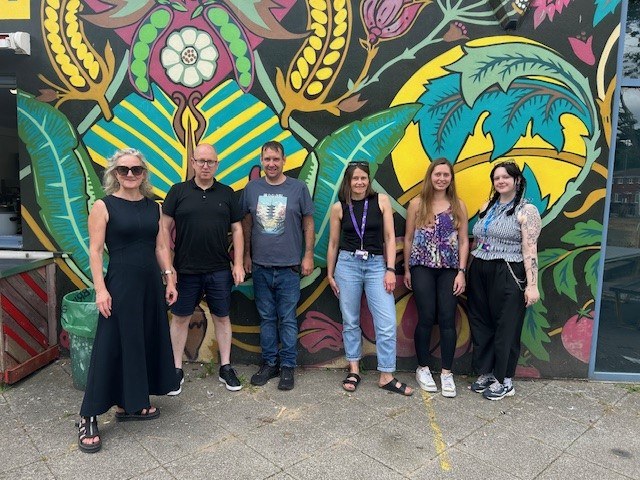
Our Criminal Justice Service works in collaboration with probation, the courts and local service providers to deliver the Intensive Supervision Court (ISC) in Bristol.
The ISC is designed to support people with complex needs who have committed an offence, offering enhanced community-based sentences as an alternative to short-term custodial sentences.
In partnership with Avon and Wiltshire Mental Health Partnership’s Integrated Non-Custodial Service (IN-CS), DHI delivers Mental Health Treatment Requirements (MHTRs) across Bristol, Bath & North East Somerset, South Gloucestershire, and Drug Rehabilitation Requirements (DRRs) and Alcohol Treatment Requirements (ATRs) in South Gloucestershire.
We also offer dedicated support for young people in Wiltshire who are involved in the criminal justice system, helping them access the services they need to move forward.
These interventions target the complex needs of people who offend – including mental health, substance misuse and social exclusion – to address the root causes of their offending.
Why are we seeing more referrals?
As non-custodial sentences increase, referrals to our Criminal Justice Service are also rising. The Sentencing Bill, which is currently making its way through Parliament, sets out plans to follow the most recent evidence on how to use sentences to reduce reoffending. This includes “expanding the use of ISCs, which target the root causes of offending”.
One key recommendation was to increase investment in the third sector, to support offender management and community sentences and improve access to support for people with mental health or substance misuse issues.
MHTRs, DRRs and ATRs are core components of the this community treatment framework.
What are Drug Rehabilitation Requirements and Alcohol Treatment Requirements?
DRRs and ATRs are court-ordered interventions that form part of a community or suspended sentence. They are designed for individuals whose offending is linked to substance misuse.
Both aim to reduce reoffending by addressing substance use and supporting people holistically, through structured treatment programmes, involving multi-agency collaboration between probation services and specialist providers.
What are Mental Health Treatment Requirements?
MHTRs are court-ordered mental health interventions given as part of a community order or suspended sentence. They aim to reduce reoffending by providing accessible, joined-up support from health, social care and justice services and may be combined with DRRs and ATRs.
MHTRs support people with complex needs who may not qualify for specialist mental health services and have often never received formal support before.
Why are MHTRs effective?
MHTRs help people address the mental health issues – such as depression, anxiety, trauma or substance misuse – that often lead to offending. By treating the underlying causes, they support people to break the cycle of crime.
Clients receive tailored psychological support, including:
These are delivered by DHI’s experienced practitioners, under the supervision of a clinical psychologist, and in close partnership with probation and court services.
Instead of going to prison, clients can stay in their communities while receiving treatment. This helps maintain family and social connections, reduces stigma and supports access to work, education or volunteering.
What’s the evidence that MHTRs work?
Community treatment orders for people who offend